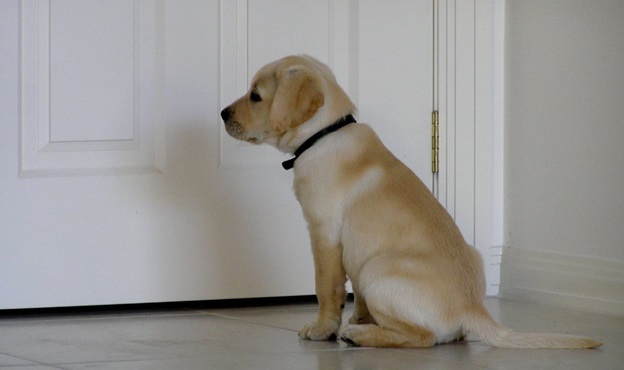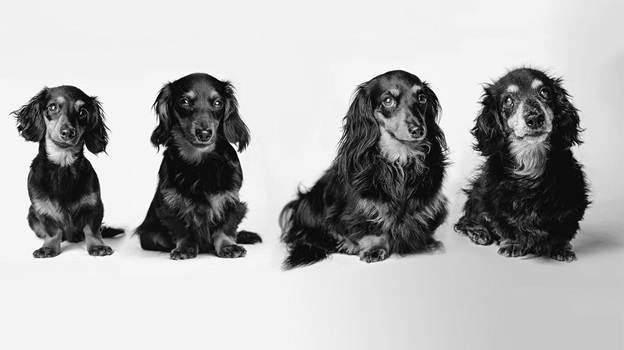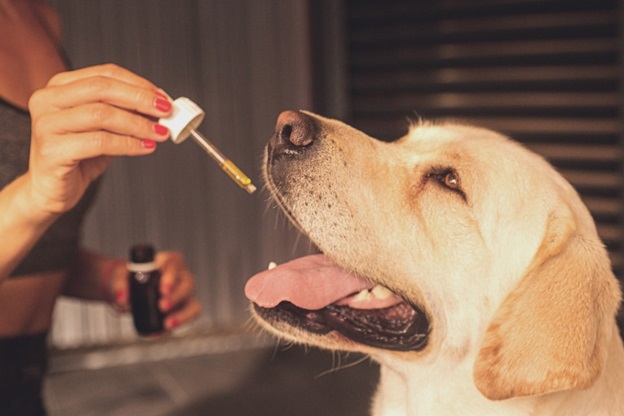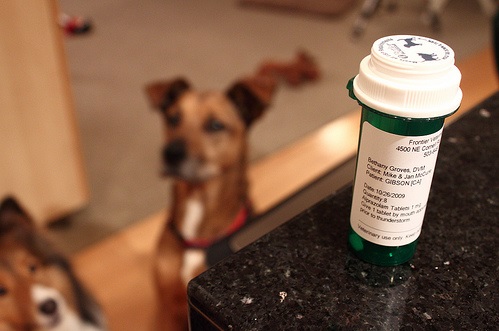Just like us humans and most other living beings, dogs experience anxiety too. Though unpleasant, anxiety is a healthy and normal emotion. Dog anxiety is seen in almost all dog breeds but has been shown to affect every individual dog differently. Anxiety is something that all dogs experience now and then, but if left unchecked, disproportionate levels of anxiety can lead to your dog developing an anxiety disorder. When left untreated, dog anxiety can lead to behavioural and various other issues.
How to find if your dog has anxiety? How can dog anxiety be treated?
This article is being written to shed light on dog anxiety — from causes to symptoms and treatments to anxiety prevention. We are here to ease the anxiety you have over your dog’s anxiety.
If your dog ever suffers from anxiety, we are here to equip you with all the know-hows to help you and your dog tackle the same effectively.
Causes For Anxiety In Dogs
Your dog can grow anxious due to various reasons. Some of the most common reasons that cause anxiety in most dogs are listed below.
Fear
Strange people or animals, loud noises, visual stimuli such as umbrellas and hats, strange or new environments, tricky situations — like car rides or the vet’s office — unusual surfaces like wooden or grass floors induce fear-related anxiety in dogs. Some dogs do adapt to these kinds of stimuli eventually, but anxious dogs might get severely affected over a while.
Separation
Separation is the cause of anxiety in 14% of total dogs suffering from anxiety disorders.
Dogs suffering from separation anxiety find it hard to find comfort when left alone or separated from their family members.
Separation anxiety often leads to unruly behaviours in dogs, such as destroying furniture and furnishings, incessant barking, and urinating and defecating all over the house.
Ageing
Cognitive dysfunction syndrome (CDS) is one of the major causes of age-related anxiety in older dogs. Dogs suffering from CDS experience a decline in memory, learning, perception, and awareness, which is mostly similar to the early stages of Alzheimer’s disease in humans. This explains the confusion and anxiety in senior dogs.
Symptoms Of Anxiety In Dogs
What are the markers for anxiety in your dog? There are more than just one. Here are the symptoms to look out for anxiety in your dog:
- Urinating or defecating in the house
- Aggression
- Panting
- Drooling
- Depression
- Restlessness
- Pacing
- Destructive behaviour
- Excessive barking
- Repetitive or compulsive behaviours
Most of the issues mentioned above are more likely the results of occasional anxiety-causing events, but recurrent exposure to anxious situations can lead to more severe issues. The gravest symptom of anxiety in dogs is unhindered aggression. Aggression in dogs is expressed either directly or indirectly. Direct aggression is when a dog is acting aggressively against other humans or animals. Indirect aggression is equally dangerous, and it generally surfaces when something comes in between the dog and the source of aggression. Even if the dog is restricted from contact with other humans and dogs, aggressive barking and growling create undesirable situations for humans and dogs alike.
Treatment For Anxiety In Dogs
The veterinarian is the best person to consult regarding your dog’s anxiety. Your veterinarian is the most qualified individual to diagnose the type of anxiety your dog is suffering from, as well as the underlying causes and triggers. Your veteran is also the only individual who can determine whether the issue with your dog is situational or a recurring one.
Furthermore, veterinarians are the only professionals who can deduce any other unique causes for your dog’s anxiety and suggest targeted preventive measures accordingly.
A veterinarian charts out a treatment plan which involves a combination of preventive strategies, training, and medications in extreme cases.
Using CBD Oil for Dog Anxiety
Many dog owners have been reporting successful treatment of their dog’s anxiety with CBD oil.
CBD is a compound extracted from cannabis and hemp plants that have proven detrimental in treating different health conditions in dogs and humans.
Anecdotal reports from dog owners acclaim CBD oil to be the most effective in treating anxiety in dogs.
Since CBD products are not yet regulated, the consistency and purity of various CBD oil brands in the market are not yet validated. Hence, it is essential to choose only the best CBD for dog anxiety by consulting your veterinarian.
A veterinarian will have an expert opinion on the best CBD oil for your doh as well as the associated risks and the consequential side effects.
Training and Counterconditioning
You can incorporate various training strategies to treat your dog’s anxiety. One of the most effective ways is counterconditioning. Counterconditioning aims at changing your dog’s reaction to anxiety-inducing stimuli. This is often achieved by replacing the dog’s aggressive or anxious behaviour with a desirable behaviour such as sitting or focusing on the owner.
Desensitization is another effective measure that works wonders in countering your dog’s anxiety. The owner can slowly introduce the dog to the triggers of its anxiety in small doses of decreased intensity. Repeated exposure accompanied with rewarding behaviour goes a long way towards managing anxiety.
Training anxious dogs is not always easy, so roping in a professional dog trainer to help you execute the best training approach for your dog becomes essential.
Medication For Dogs With Anxiety
When your dog develops severe anxiety disorders, medications or natural therapies suggested by your veterinarians is the only way to tackle it. Occasionally, SSRIs and antidepressants are prescribed to dogs suffering from anxiety, along with fluoxetine and clomipramine. For events such as thunderstorms, fireworks or car rides that are bound to induce anxiety in your dog, veterinarians might prescribe benzodiazepine in addition to an antidepressant to aid your dog in coping with the stress.
The drug selegiline aids senior dogs with cognitive dysfunction syndrome by reducing some of the symptoms.
Selegiline is also effectively used for treating chronic anxiety in dogs across Europe.
The Merck Veterinary Manual mentions how natural therapies and products help dogs with anxiety. Natural products predominantly focus on pheromones and aromatherapy to alleviate anxiety. Ask for sound advice from your veterinarian about the natural products which are best suited for your dog.
Treating anxiety in dogs is an intensive as well as extensive process that consists of various variables along with the obvious ifs and buts. Hope this article helps you take the right decisions without getting too anxious.





